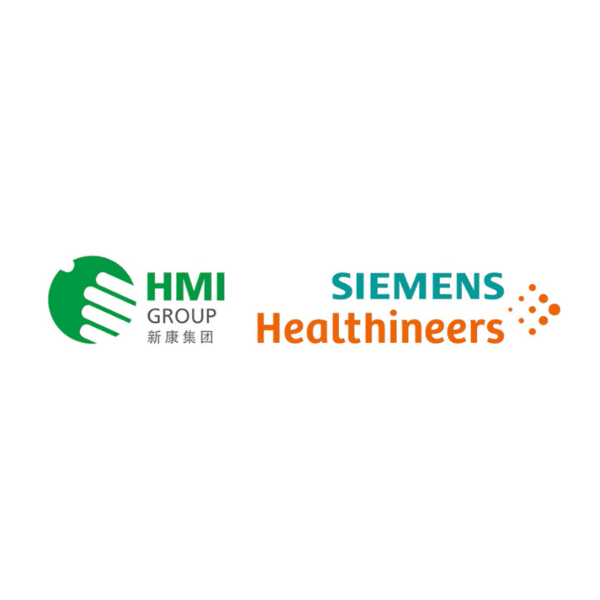- This 5-year partnership valued over SGD 32 million, is first-of-its-kind strategic partnership for Siemens Healthineers in the region.
- It focuses on upgrading HMI Group’s healthcare facilities, anchoring on digitalisation and enhancing local talent pool.
- It includes further development of Centres of Excellence (CoEs) for Cancer, Neuroscience and Cardiovascular diseases, to improve treatment and patient care in these clinical areas.
Health Management International (HMI Group) and Siemens Healthineers entered into a 5-year strategic partnership to advance healthcare delivery in Southeast Asia. As part of this first-of-its-kind partnership in the region, HMI Group will invest over SGD 32 million to roll out innovative medical technologies and digitalisation platforms, enhance clinical education and further develop Centres of Excellence (CoEs) in the key clinical areas of cancer, neuroscience and cardiovascular diseases. This investment is a key component of the HMI Group’s ongoing expansion initiatives across StarMed Specialist Centre in Singapore and tertiary hospitals in Malaysia — Mahkota Medical Centre (Mahkota) in Melaka and Regency Specialist Hospital (Regency) in Johor.
Singapore’s comprehensive ecosystem brings local and international players together to harness global trends of digital healthcare transformation and improving access to care. HMI Group’s prominence as a leading regional private healthcare services provider, coupled with Siemens Healthineers medtech expertise, together can contribute to a healthy society and healthcare ecosystem, enhancing Singapore’s position as a regional healthcare and digital hub.
Ms Chin Wei Jia, Group CEO of HMI Group said, “This strategic partnership will enable HMI Group’s medical facilities to improve patient care by serving as flagship reference sites for Siemens Healthineers in Southeast Asia. As the care of our patients is at the center of everything that we do, our partnership will accelerate the adoption of connected health, thereby providing faster access to care, while building telehealth and predictive analytics capabilities at scale, all of which will go a long way in enhancing our patients’ journey towards a healthier outcome.”
According to Mr. Fabrice Leguet, Managing Director and Head of Siemens Healthineers, Southeast Asia, “At Siemens Healthineers, we understand the challenges that healthcare providers face in meeting the demand of providing quality healthcare. We are delighted to have signed this strategic partnership with HMI Group, which is first such for us in Southeast Asia. We will not only provide our innovative technology and digital solutions, but also support HMI Group to create value through enhanced training programs and provide healthcare consulting to further develop Centres of Excellence in the areas of cancer, neuroscience and cardiovascular. This will further position HMI Group as a leading quality healthcare provider in the region.”
As part of the pioneer cohort of Enterprise Singapore (ESG)’s Scale-up SG programme, HMI Group has made significant strides in digital transformation and community engagement to accelerate growth. Acquiring new capabilities through this partnership demonstrates HMI Group’s pursuit to unleash healthcare innovation to spur growth, develop higher value-added services and venture into new markets.
Mr. Ted Tan, Deputy Chief Executive Officer of Enterprise Singapore said, “We would like to congratulate HMI Group and Siemens Healthineers on their strategic partnership. Building on the growth strategies developed through the Scale-up SG programme, we are confident that this partnership to leverage on digital technologies will further strengthen HMI as a leading healthcare provider in Southeast Asia.”
Tackling NCDs in Southeast Asia
About 62% of all deaths in Southeast Asia are due to non-communicable diseases (NCDs) like cancer, cardiovascular disorders (CVD) and diabetesi. According to WHO, about 74% of all deaths in Singapore, Malaysia and Indonesia are caused by NCDsii. Early detection and tailored treatment using innovative technologies, while enhancing clinical knowledge, is becoming significantly important to address the rise in incidences of NCDs.
The further development of CoEs in the clinical areas of cancer, neuroscience and cardiovascular diseases, is part of HMI Group’s plans to deepen the use of digital health, big data and precision diagnosis, to transform how care is delivered and experienced. Especially now, given that countries are still recovering from the COVID-19 pandemic and the burden of NCDs on the ageing population. In 2035, the percentage of the population of Singapore above the age of 65 years was forecasted to reach 25.9%.iii
Development of CoEs will require growing specialist talents within the region. Subsequently, HMI Group is looking at recruiting and developing local talents in the fields of clinical, allied health and hospital management, to meet the ever-evolving demand of patient care. Siemens Healthineers global consulting and clinical team, along with HMI Group will enhance the skills of this talent pool by training and knowledge transfer on the latest technologies and digital platforms.
Digitalisation to enhance patient care
Singapore has always been in the forefront of embracing digital health solutions. Digital technologies will play an increasingly important role in addressing challenges like improving access and quality of care. Leveraging long-term partnerships supports in providing more holistic care in a patient’s journey with the adoption of digitalisation. Artificial Intelligence (AI), remote monitoring, telehealth, are some of the current and future trends in the healthcare industry, which will be part of the CoE development at HMI Group.
Siemens Healthineers Biomatrix technology supported by AI in its MRI scanner, will allow scanning of every patient type by automatically adjusting to each individual patient, resulting in a higher diagnostic confidence, fewer rescans and more predictable scheduling. With its teamplay performance management applications and healthcare consulting services, HMI Group will be able to make quick and well-informed decisions to further improve the overall patient journey by eliminating bottlenecks like patient waiting times and quick reporting, among others.
Established earlier this calendar year, this partnership signals the start of a long-term relationship between Siemens Healthineers and HMI Group to advance healthcare delivery in the region. “The trend of providing consulting services to healthcare providers to build strong partnerships, exists in many parts of the world. We are happy that we are introducing this trend in Southeast Asia with HMI Group’s facilities, which will be Siemens Healthineers’ first reference site for Value Partnership in the region. Developing HMI Group’s facilities as a reference site will demonstrate how Value Partnerships play a critical role to overcome the increasing challenges in the industry today,” adds Leguet.
This collaboration with HMI Group is a long-term Value Partnership. This partnership model with Siemens Healthineers enables healthcare providers to optimize business processes, expand capabilities, and advance innovation. It spans on the entire Siemens Healthineers portfolio, to generate added value above and beyond equipment itself. Value Partnerships are designed to fit the customer’s needs entirely. Siemens Healthineers has formed Value Partnerships with many healthcare providers around the world. The latest examples include Hamilton Health Sciences in Canada, the University of Missouri System in the USA, Dallah Health Company in Saudi Arabia and Braunschweig Municipal Hospital in Germany.
“HMI Group is committed to not just improve the lives of our patients by providing access to better solutions, but the community as a whole by supporting local talents and through continual investment in medical technologies, ultimately raising the bar for care delivery of the future. Our partnership with Siemens Healthineers, will contribute towards our achievement of this goal,” said Chin.
Source:
iWHO Noncommunicable diseases in the South-East Asia:
https://www.who.int/southeastasia/health-topics/noncommunicable-diseases
iiWHO Noncommunicable Diseases (NCD) Country Profiles, 2018
https://www.who.int/nmh/countries/mys_en.pdf
https://www.who.int/nmh/countries/sgp_en.pdf?ua=1
https://www.who.int/nmh/countries/idn_en.pdf
iiiStatista 2021
Source:
iWHO Noncommunicable diseases in the South-East Asia:
https://www.who.int/southeastasia/
health-topics/noncommunicable-diseases
iiWHO Noncommunicable Diseases (NCD) Country Profiles, 2018
https://www.who.int/nmh/countries/
mys_en.pdf
https://www.who.int/nmh/countries/
sgp_en.pdf?ua=1
https://www.who.int/nmh/countries/
idn_en.pdf
iiiStatista 2021






